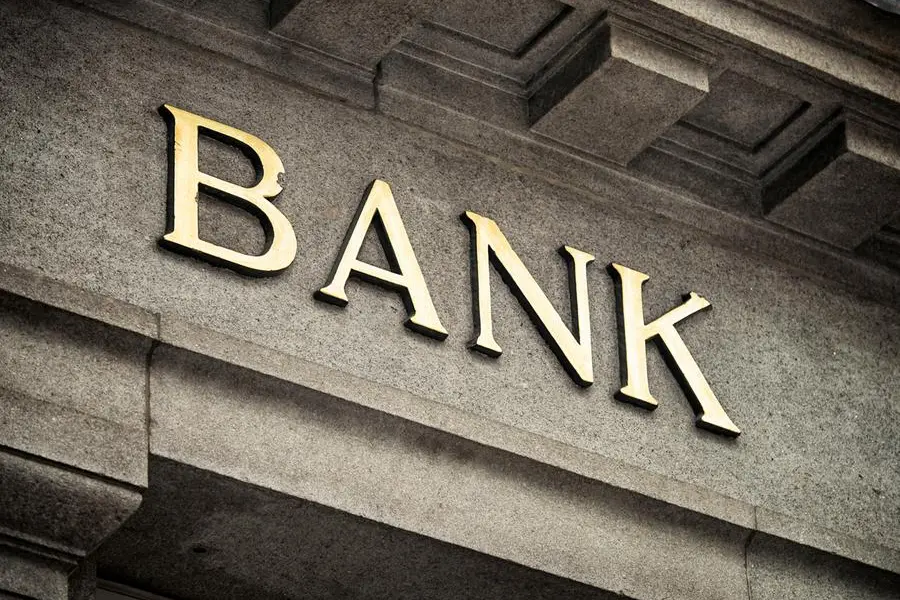PHOTO
Rising interest rates are taking a bite out of GCC bank revenues, marking the first decline in three years, shows a new report by Kamco Invest, a Kuwait-based investment firm.
Shedding light on the performance of listed banks in the six-nation bloc during the first quarter of 2024, the report however reveals a resilient banking sector with strong profitability and a continued focus on growth.
The data, aggregated at the country level, reveals the impact of rising interest rates. Total revenue for the sector fell for the first time in 12 quarters, reaching $31.4 billion in Q1-2024.
This decline stemmed from a q-o-q drop in both net interest income (NII) and non-interest income. Flattish growth in total interest income ($50.5bn) reflected an average yield on credit of 4.3pc, largely unchanged from the past three quarters.
Meanwhile, a slight rise in interest expense led to a marginal decline in NII of $21.3bn.
The cost of funds also reached a record high for the GCC banking sector at 4.5pc by the end of Q1-2024, up from 4.2pc in Q4-2023 and a significant jump from 2.5pc a year earlier.
Non-interest income, totalling $10.2bn during the quarter, also witnessed a decline due to a fall in “other interest income” that outweighed growth in management fees and commission income.
Despite higher borrowing costs, lending in the region continued to expand. Central bank data across the GCC showed a rise in q-o-q lending for all member countries.
Listed banks reported gross loans reaching a record high of $2.02 trillion by the end of Q1-2024, reflecting a 1.8pc q-o-q increase. Aggregate net loans also rose sequentially, reaching $1.92trn after a growth of 2.3pc.
On the other hand, customer deposits witnessed a significantly stronger growth rate during the quarter, driven by depositors seeking higher returns. Total customer deposits hit $2.45trn at the end of Q1-2024, marking the biggest q-o-q rise (2.8pc) in four quarters.
The rising cost of funding in the local market pushed banks to explore international debt issuance. Data showed regional banks and financial services companies issuing $24.5bn in US dollar-denominated bonds/sukuk during the first four months of 2024, compared to $32.9bn for the entirety of 2023 and $16.4bn in 2022. These issuances aim to diversify funding sources and support the region’s ongoing investment and infrastructure development plans.
The loan-to-deposit ratio for the GCC banking sector declined to its lowest level in four quarters, reaching 78.7pc at the end of Q1-2024. This 40 basis point drop from the previous quarter reflects the sharper rise in customer deposits compared to loans at the aggregate GCC level.
While total operating expenses for listed banks in the GCC saw a decline from the record high of the previous quarter, falling 4.5pc to $12.5bn in Q1-2024, the bottom line performance remained robust. Profitability witnessed a healthy q-o-q growth of 11.8pc and a y-o-y increase of 10.5pc, reaching $14.4bn during Q1-2024.
This strong growth, despite a revenue decline, reflects a reduction in total operating expenses and a significant drop in quarterly impairments. Loan loss provisions booked during the quarter hit a five-year low of $2.3bn, compared to $3.5bn in Q4-2023.
The cost of risk (ratio of 12-month provisions versus average loans) remained low compared to recent quarters at 0.55pc for the aggregate GCC banking sector. This historically low ratio points towards recoveries, positive economic indicators, and stable asset quality.
Furthermore, the aggregate return on equity (RoE) for the GCC banking sector continued its upward trend, reaching 13.5pc in Q1-2024 – one of the highest levels in recent years.
This represents a pre-pandemic level and an improvement from 13.4pc at the end of Q4-2023. The y-o-y comparison also shows a strong increase of 110 basis points, supported by a rise in aggregate 12-month profitability coupled with a relatively smaller growth in shareholders’ equity.
Copyright 2022 Al Hilal Publishing and Marketing Group Provided by SyndiGate Media Inc. (Syndigate.info).





















